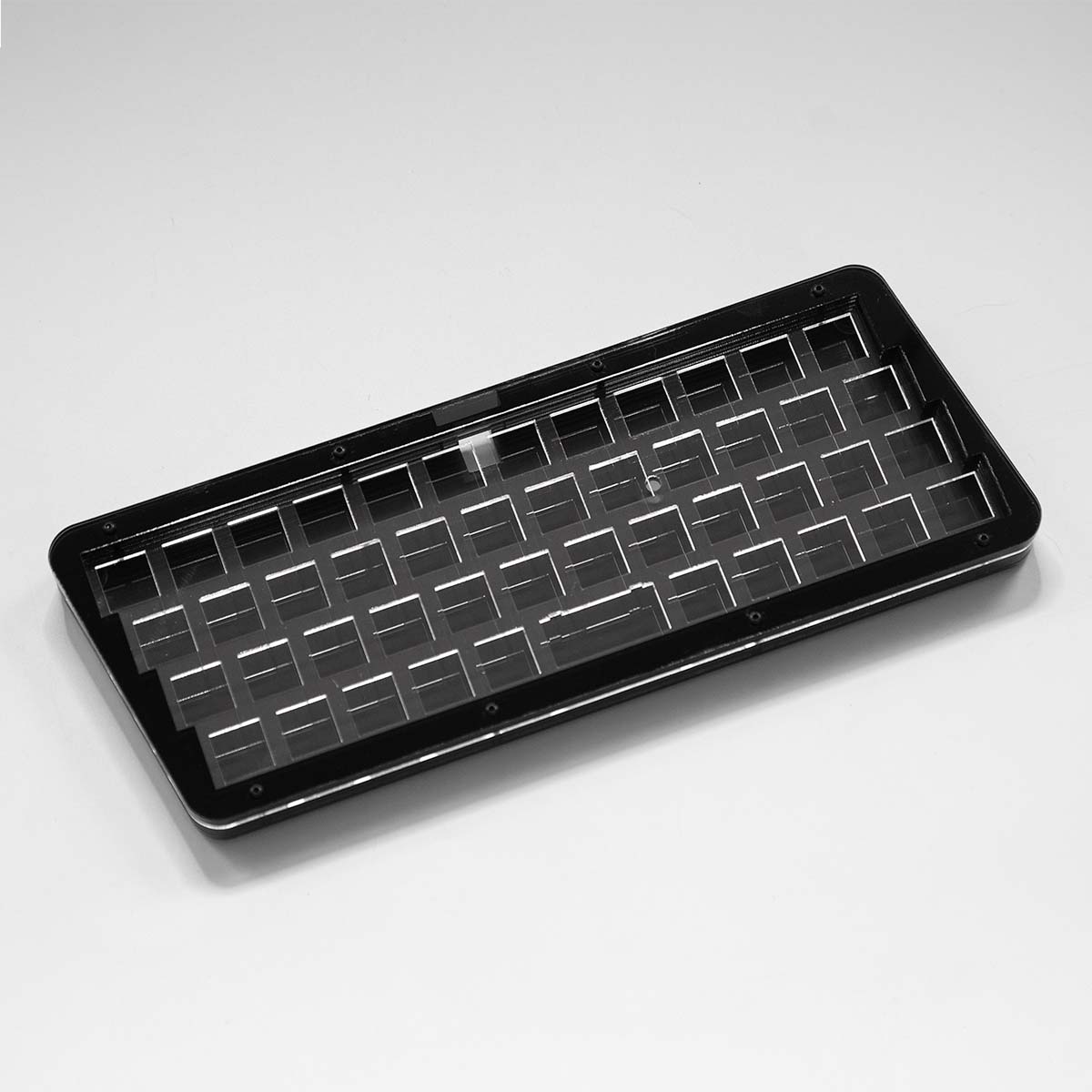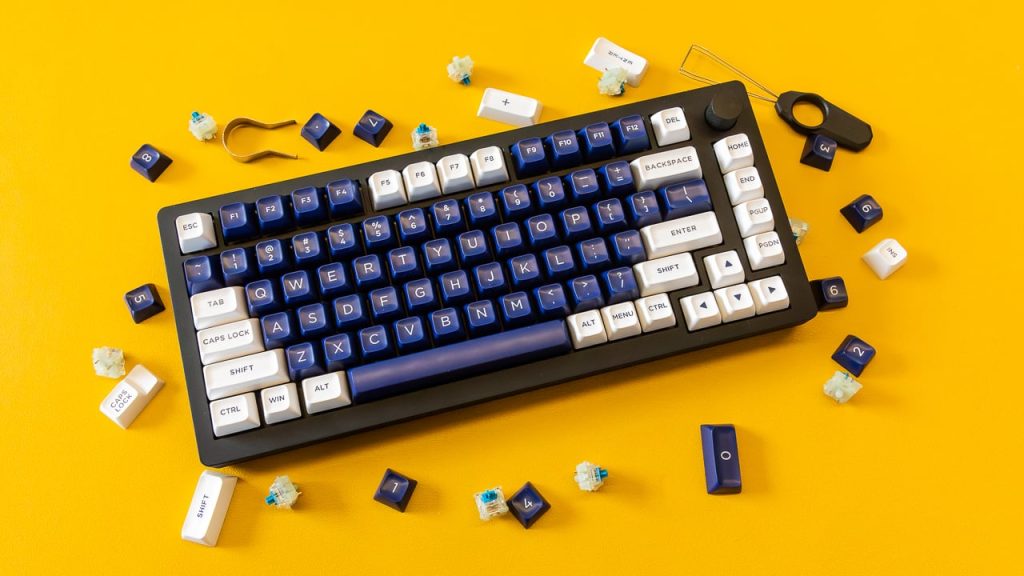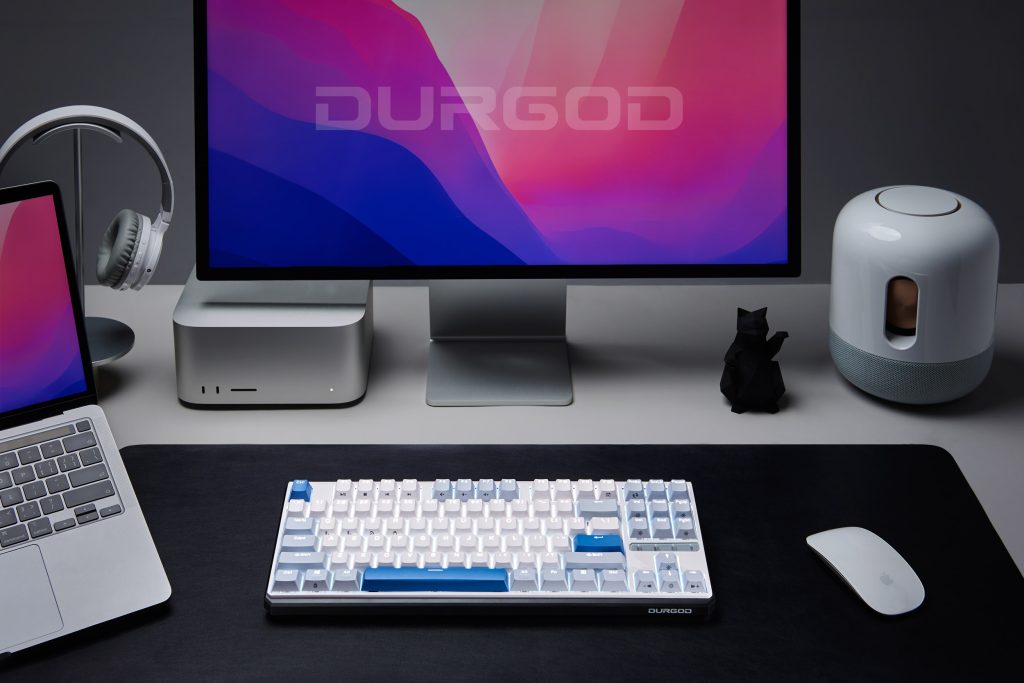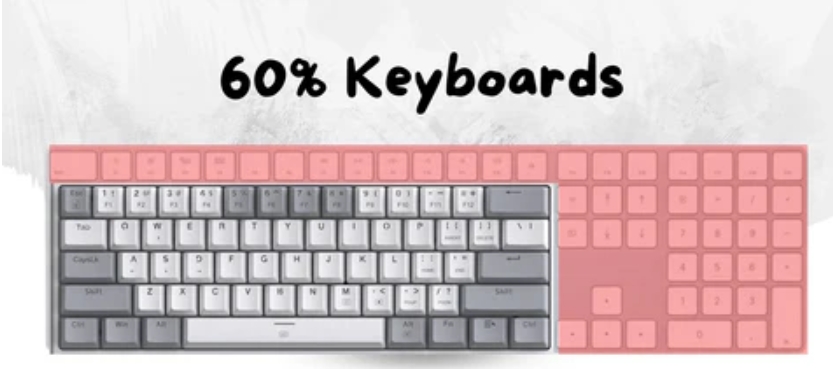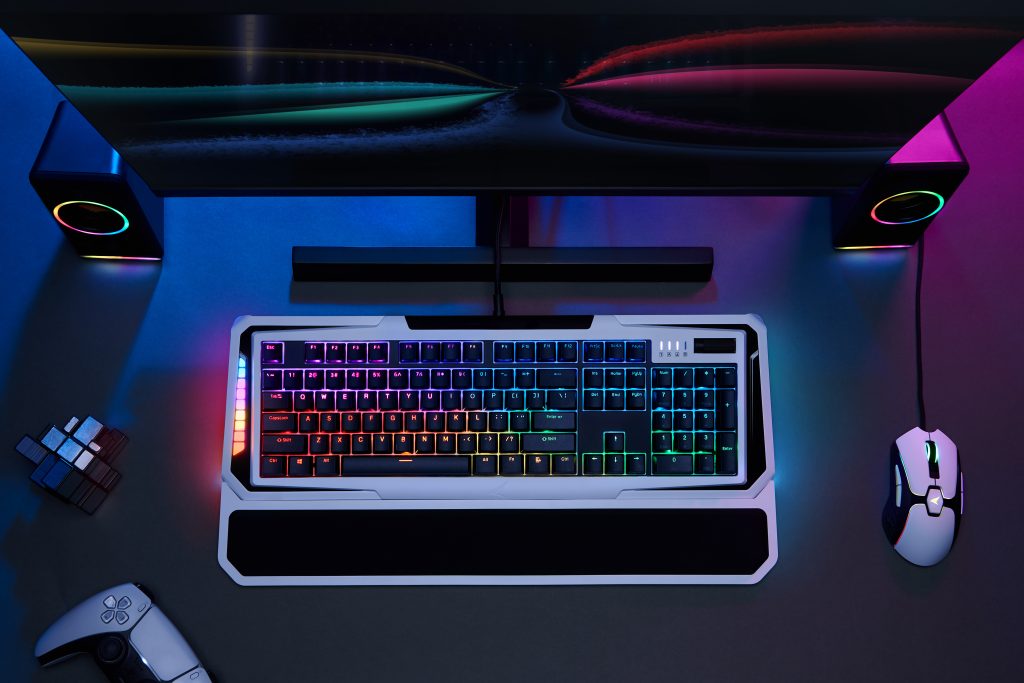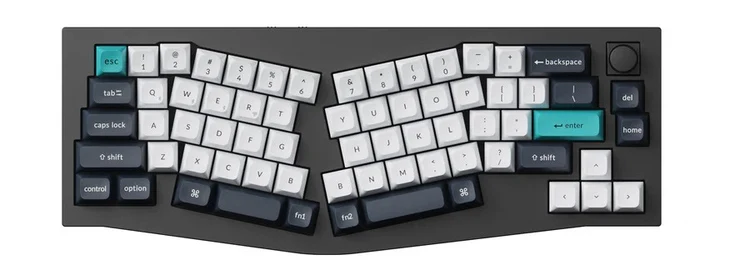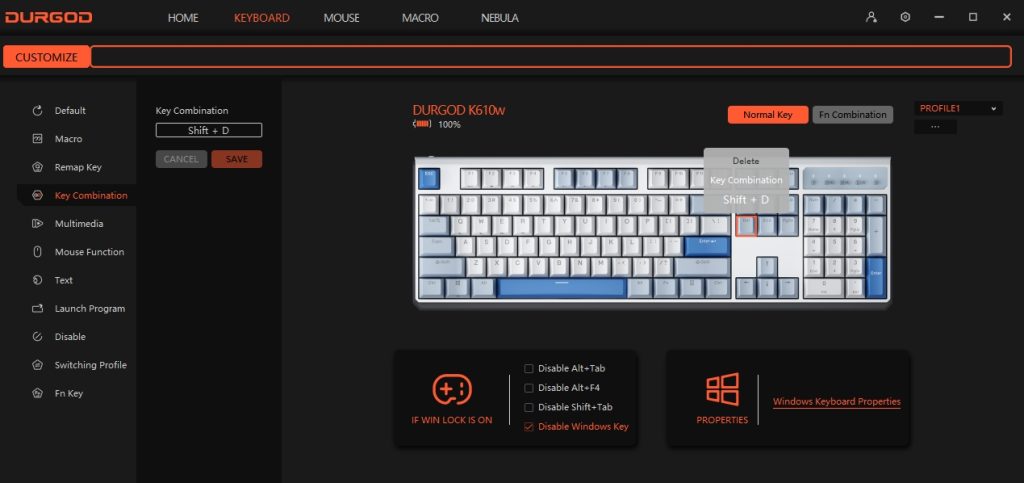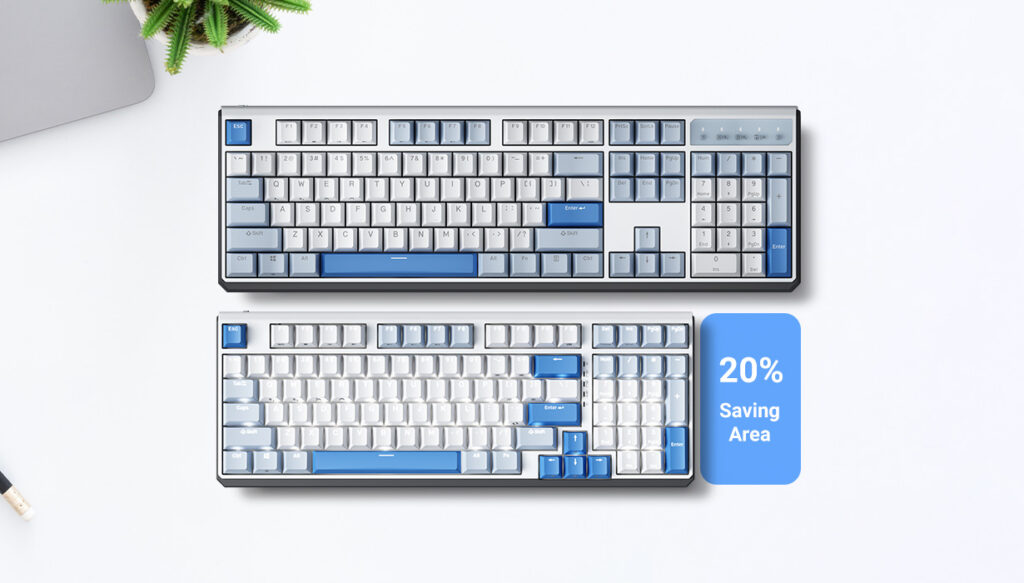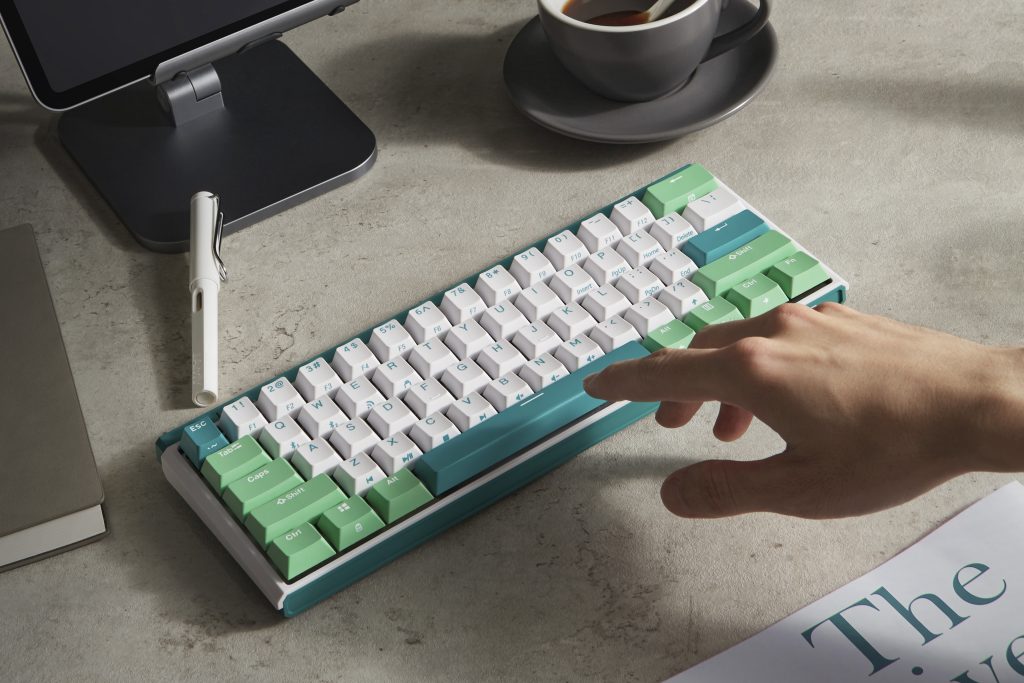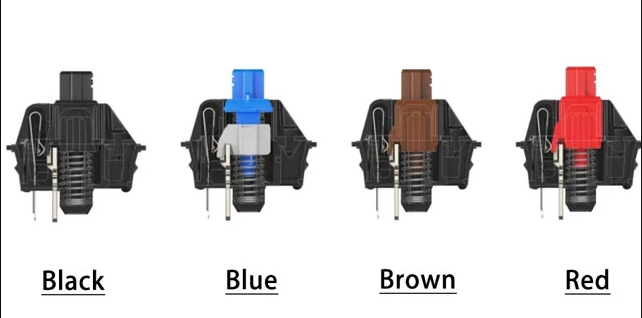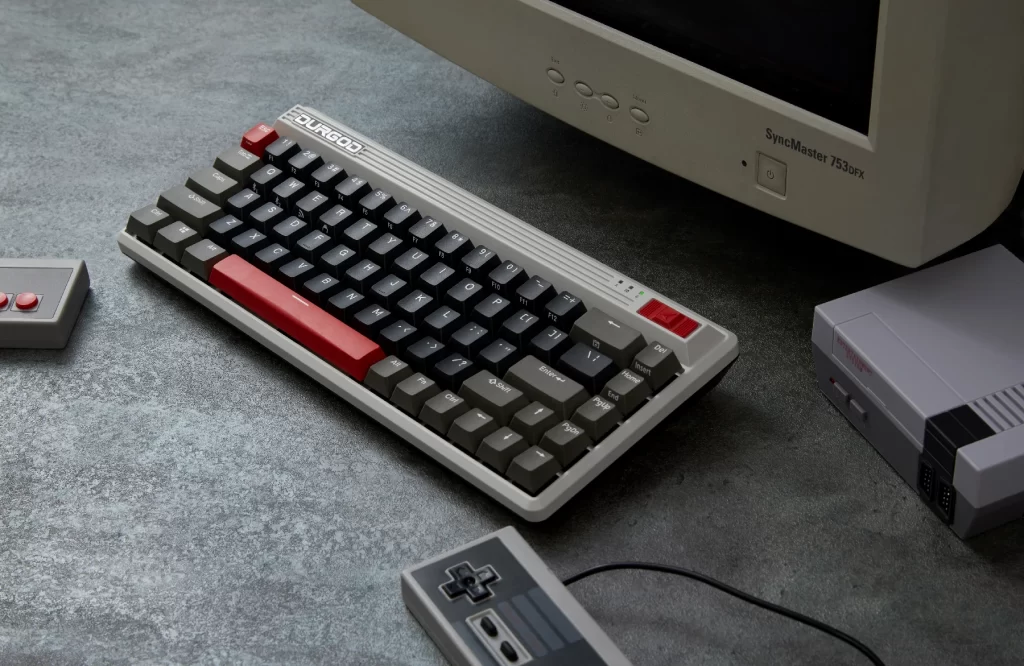A 40% mechanical keyboard epitomizes minimalist design within the realm of mechanical keyboards, offering a compact and portable option without sacrificing the tactile satisfaction for which mechanical keyboards are revered.
Within the vast landscape of mechanical keyboards, where size and functionality span a broad spectrum, the “40 percent mechanical keyboard” stands out as a compact powerhouse gaining traction. But, what distinctively sets this diminutive mechanical marvel apart from its larger counterparts?
What Sets a 40% Mechanical Keyboard Apart?
A 40% mechanical keyboard, as its name indicates, incorporates approximately 40% of the keys found on a standard full-size keyboard, equating to about 40 to 50 keys. Fundamentally, it maintains the alphanumeric keys (letters and numbers) while eliminating most, if not all, function keys, the number pad, navigation cluster (like arrow keys), and occasionally even the top row number keys. The design philosophy centers around simplification and efficiency.
The Appeal of Going Compact
The primary attraction of a 40% mechanical keyboard is its ultra-compact design. It is significantly more diminutive than even the typical mini mechanical keyboard, rendering it perfect for those with constrained desk space or for users who are frequently on the go. Brands like Durgod harness this appeal by providing high-quality, portable keyboards that do not compromise on performance.
Nonetheless, the minimalist design implies that some frequently utilized keys are accessible through combinations or layers, necessitating a learning curve for newcomers. While this may pose a drawback for some, it simultaneously promotes the adoption of more efficient typing methodologies, which can be a considerable advantage for others.
Why Consider a 40% Mechanical Keyboard?
The foremost advantage of a 40% mechanical keyboard is its space-saving attribute. For individuals with limited desk space or those constantly mobile, a 40% mechanical keyboard offers unmatched convenience. Pioneers like Durgod are at the vanguard of this movement, crafting high-quality compact mechanical keyboards that are both stylish and functional. Furthermore, these keyboards prioritize ergonomics. The reduction in the number of keys encourages users to adopt more efficient typing practices, potentially diminishing hand movement and fatigue. This makes them an excellent choice for programmers, writers, or anyone who dedicates substantial time to typing.
Who Should Consider a 40% Mechanical Keyboard?
This keyboard is ideally suited for individuals who value portability and minimalism. It is particularly apt for writers, programmers, and anyone desiring a clutter-free setup without forsaking the mechanical tactile experience. However, it may not cater well to those dependent on number pads or specific function keys.
Points to Ponder
Transitioning to a 40% mechanical keyboard can present challenges. The reduced key count means many functions are accessible through layers or combinations, which may require adaptation. This might not be suitable for users who heavily depend on number pads or specific function keys.
Conclusion
In conclusion, a 40% mechanical keyboard is a statement piece in the domain of typing and computing – compact, efficient, and aesthetically pleasing. It’s a quintessential choice for minimalists, and mobile professionals. Also for those aiming to declutter their workspace while relishing the distinctive typing experience of a mechanical keyboard.
It also signifies a niche yet expanding segment in the keyboard market, offering a unique amalgamation of portability and functionality. It’s a statement piece for the contemporary, mobile, and minimalist user.
For those intrigued by the allure of these mini mechanical marvels, exploring options from a brand like Durgod is a great starting point. Their range of high-quality mechanical keyboards balances design, functionality, and user experience, making them a worthy investment.
For more knowledge of mechanical keyboards, visit DURGOD.



